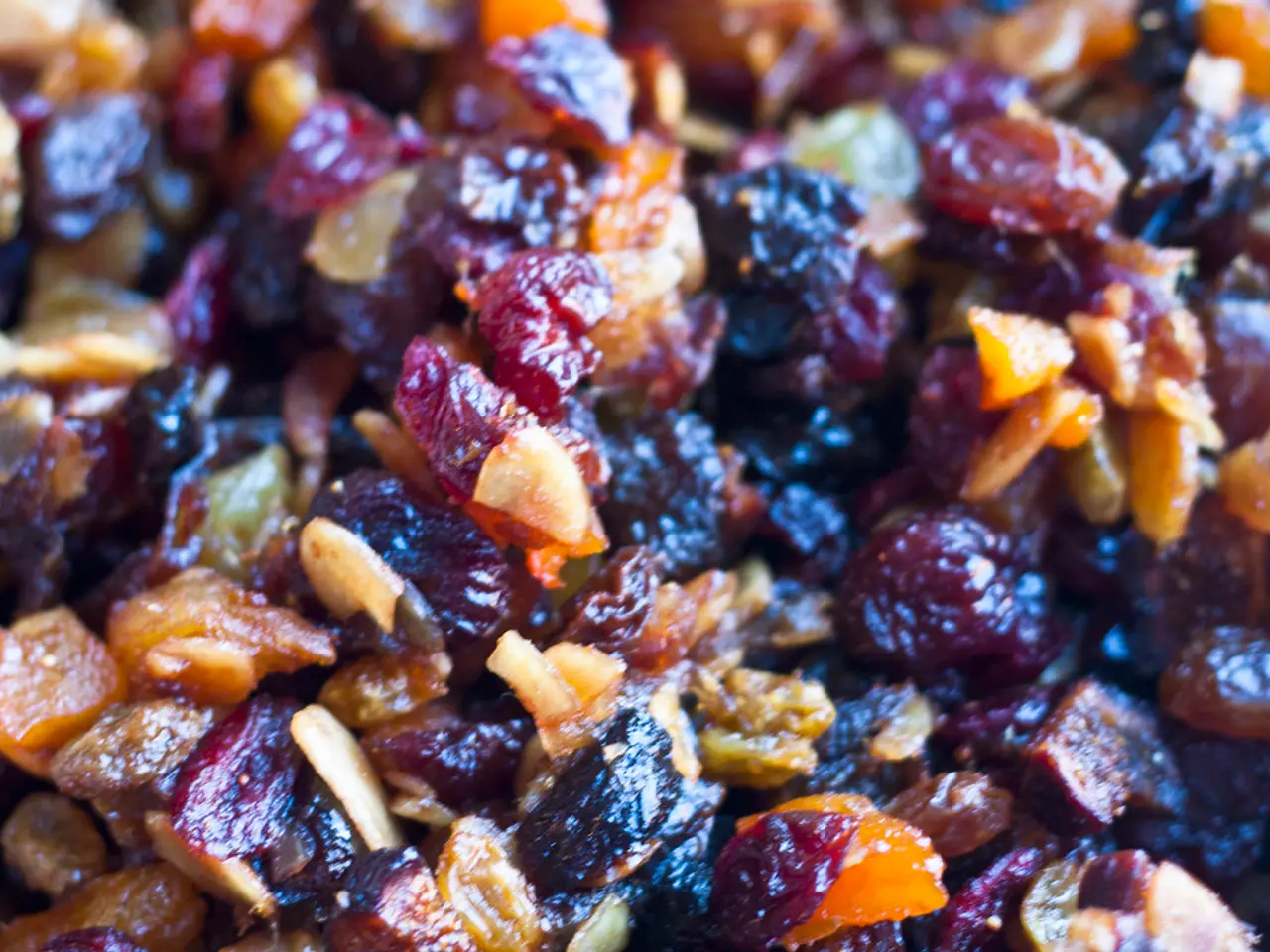Foods to steer clear of during cataract surgery recovery period
A balanced diet is crucial for aiding in the healing and recovery process after cataract surgery, as well as promoting general eye health. The dietary guidelines emphasize a nutritious, balanced diet rich in lean proteins, leafy green vegetables, and vitamins A, C, and E.
Leafy Greens and Eye Health
Leafy greens such as spinach and kale are packed with lutein and zeaxanthin, both essential for eye repair and function. These nutrients help protect the macula, which provides detailed vision.
Lean Proteins and Tissue Healing
Lean proteins are vital for supporting tissue healing during the recovery period. Sources of lean protein include fish, poultry, and legumes.
Vitamins A, C, and E for Eye Tissue Repair and Immune Support
Foods rich in vitamins A, C, and E boost eye tissue repair and immune support. Vitamin A, found in carrots and sweet potatoes, prevents dry eyes and helps the retina turn light rays into images. Vitamin C, found in oranges and bell peppers, helps protect the body from damage and helps repair and grow new cells. Vitamin E, which keeps cells healthy, can be found in nuts and seeds.
Omega-3 Fatty Acids and Anti-Inflammatory Benefits
Omega-3 fatty acids, found in fish like salmon, walnuts, and chia seeds, offer anti-inflammatory benefits, which are particularly useful in reducing inflammation during the recovery period.
Whole Grains and Stable Blood Sugar
Whole grains like brown rice and oats help maintain stable blood sugar, which is important as blood sugar spikes can damage eye blood vessels and delay recovery.
Hydrating Foods and Eye Moisture
Hydrating foods like cucumbers and watermelon help maintain eye moisture and general health.
Foods to Avoid
It's important to avoid foods high in refined carbohydrates and sugars, as they can raise blood glucose levels and impair healing by damaging eye blood vessels. Processed and junk foods, which are linked to poor eye health, should also be avoided. Excessive alcohol may also impair eye recovery and health.
Other Factors to Consider
A high salt intake can lead to inflammation in the eye, which is counterproductive to recovery after cataract surgery. A Western diet high in red meat, saturated fats, highly processed foods, candy, and sugar-sweetened beverages is associated with early age-related macular degeneration (AMD) risk. Refined carbohydrates, such as white rice, white bread, and refined breakfast cereals, may spike blood glucose levels, which can slow recovery after cataract surgery.
The Importance of a Balanced Diet
A balanced diet should contain no more than 2300 milligrams of sodium daily. Quitting smoking, protecting the eyes from the sun and injury, and making eye-healthy food choices can help lower the risk of developing cataracts. Making eye-healthy food choices can also help lower the risk of complications after cataract surgery and speed healing.
Cataract Surgery
Cataract surgery is a common and successful surgical procedure that restores vision to millions of people each year. After cataract surgery, it is important to focus on maintaining a diet that supports overall health and avoids processed foods, fast foods, excess salt, sugar, tobacco, and alcohol.
[1] Dietary Guidelines for Americans 2020-2025. (2020). Retrieved from https://www.dietaryguidelines.gov/
[2] American Academy of Ophthalmology. (2021). Nutrition and Age-Related Macular Degeneration. Retrieved from https://www.aao.org/eye-health/diseases/nutrition-and-age-related-macular-degeneration
[3] American Optometric Association. (2021). Nutrition and Eye Health. Retrieved from https://www.aoa.org/patients-and-public/caring-for-your-vision/nutrition-and-eye-health
[4] National Eye Institute. (2021). Cataract. Retrieved from https://nei.nih.gov/healthy-eyes/age-related-macular-degeneration/cataract
[5] American Academy of Ophthalmology. (2021). Cataract Surgery. Retrieved from https://www.aao.org/eye-health/diseases/cataract-surgery
Mental Health and Workplace Wellness
Maintaining a healthy diet during the recovery period after cataract surgery can also contribute to mental health and workplace wellness. The stress of surgery and recovery can be alleviated by consuming foods rich in nutrients that promote brain health, such as lean proteins and omega-3 fatty acids.
Skin Care and Nutrition
A balanced diet that includes vitamins A, C, and E can improve skin health, promoting a radiant complexion. These vitamins act as antioxidants, helping protect the skin from environmental stressors.
Fitness, Exercise, and Eye Recovery
Regular exercise and fitness routines not only support overall health but can aid in eye recovery after cataract surgery. Exercise helps lower blood pressure and improves blood flow to the retina, enhancing vision and speeding recovery.
Therapies, Treatments, and a Holistic Approach
A holistic approach to personal wellness, incorporating not only a balanced diet but also skin care, exercise, and mental health strategies, can lead to a speedier recovery after cataract surgery. Various complementary therapies, such as yoga and meditation, may help reduce stress and improve sleep quality during the recovery period.
Health and Wellness Beyond Eye Health
Ultimately, a balanced diet is essential for overall health and wellness, providing numerous physical and mental benefits. Proper nutrition affects not only eye health but also fosters a stronger immune system, improves skin health, promotes mental well-being, supports physical fitness, and boosts workplace productivity.




